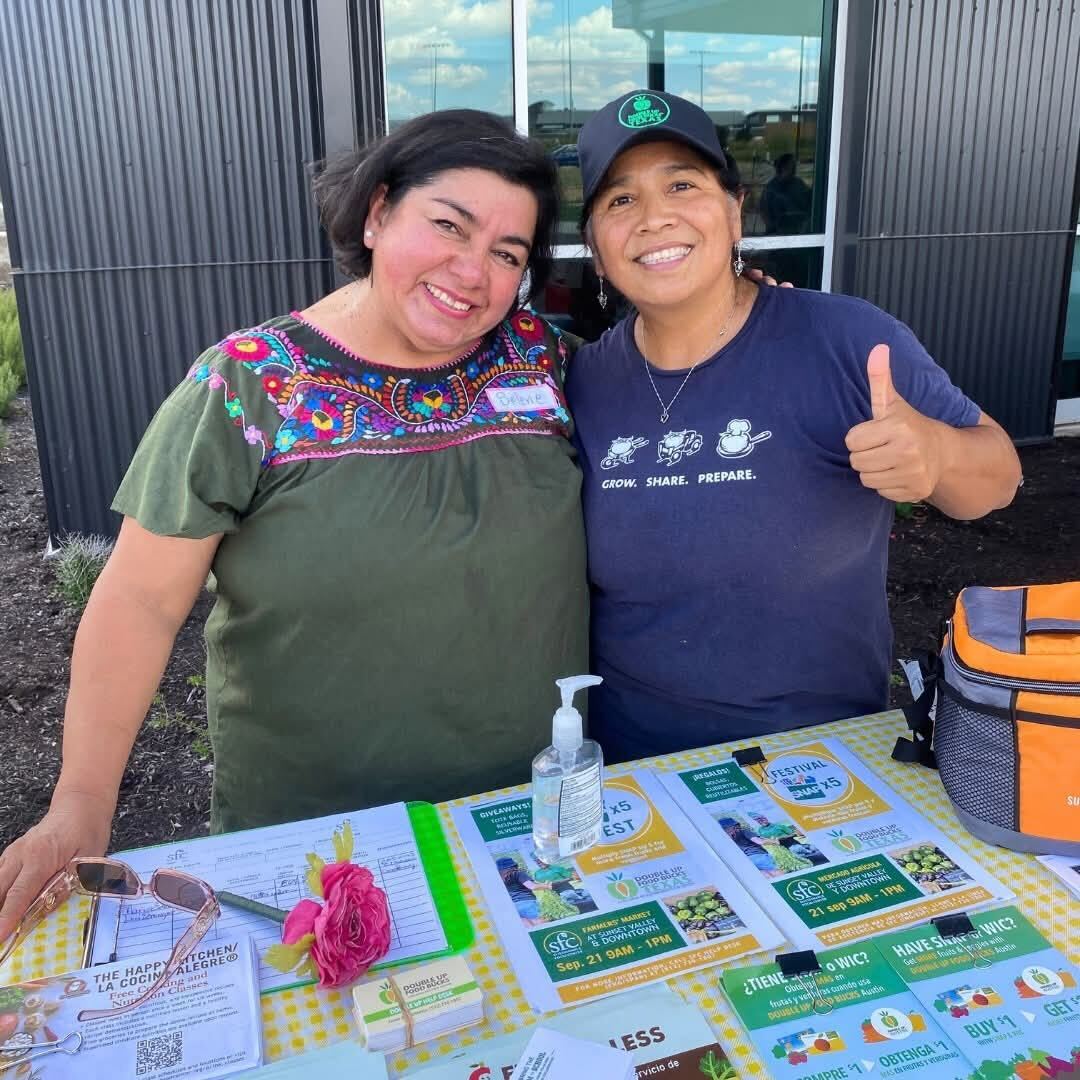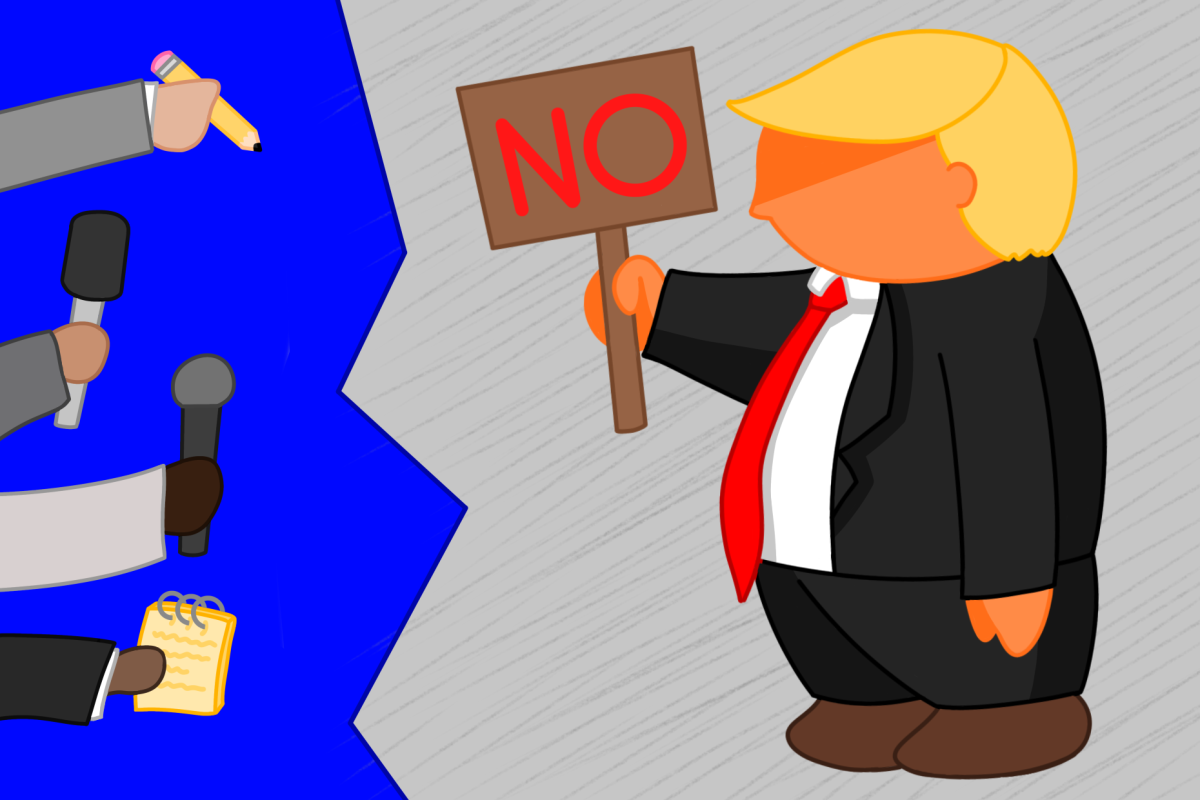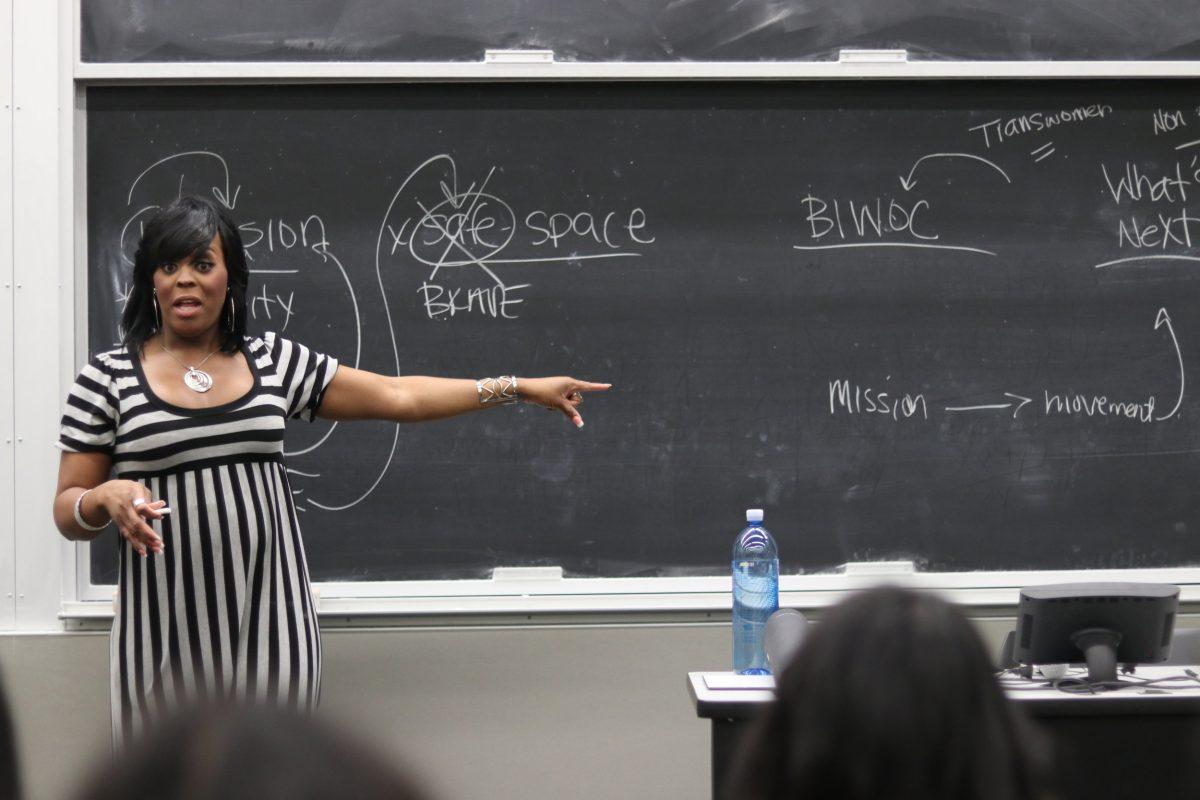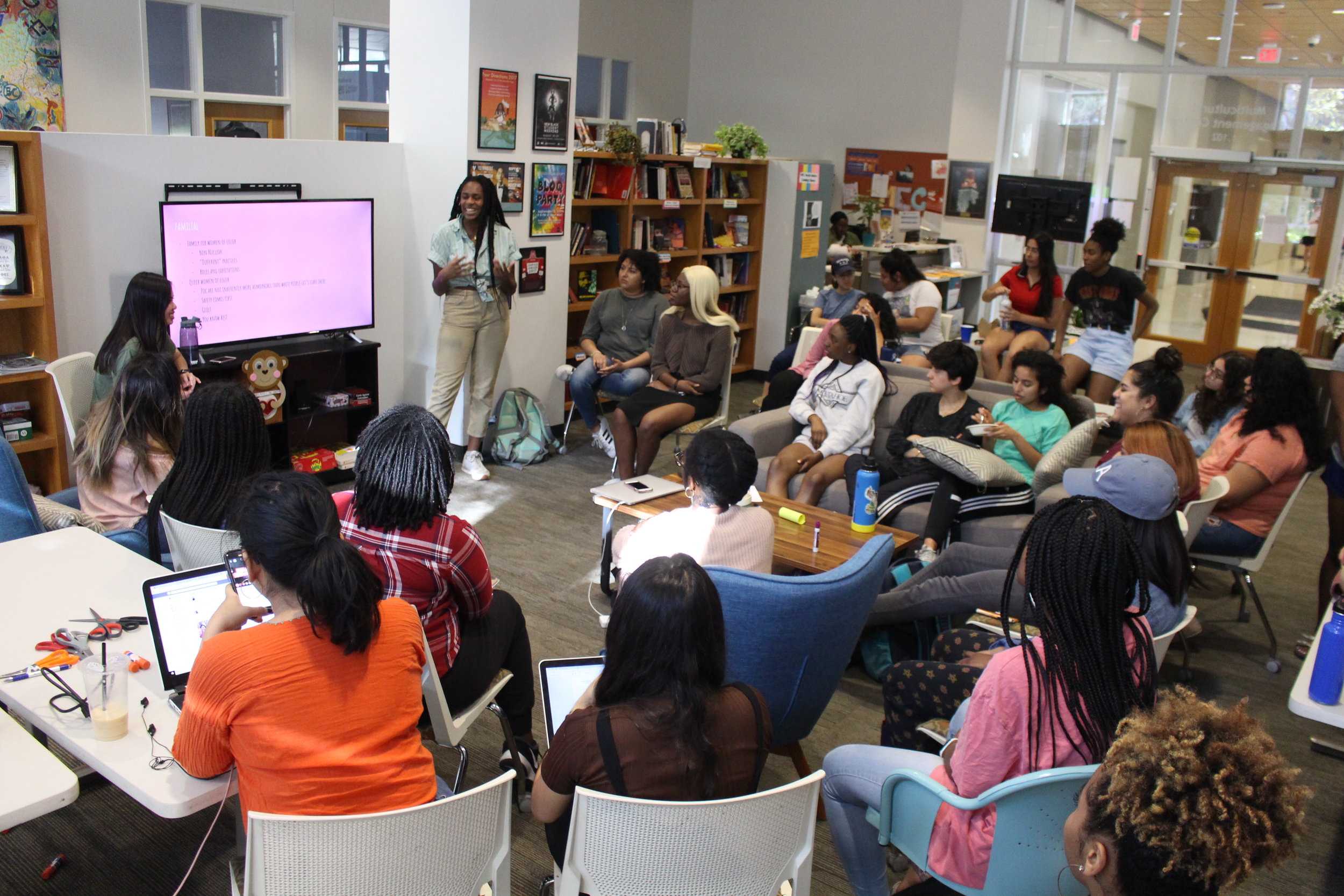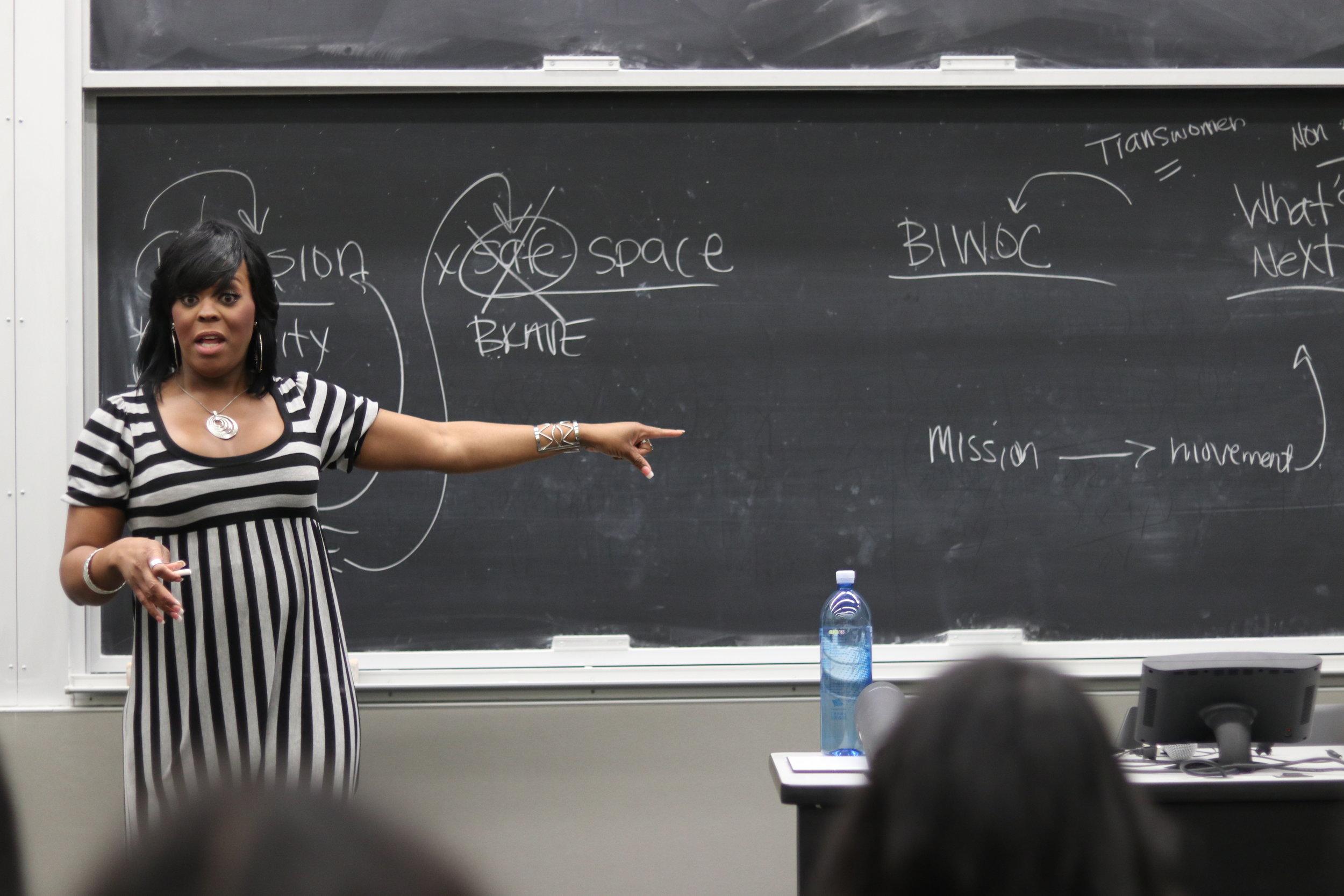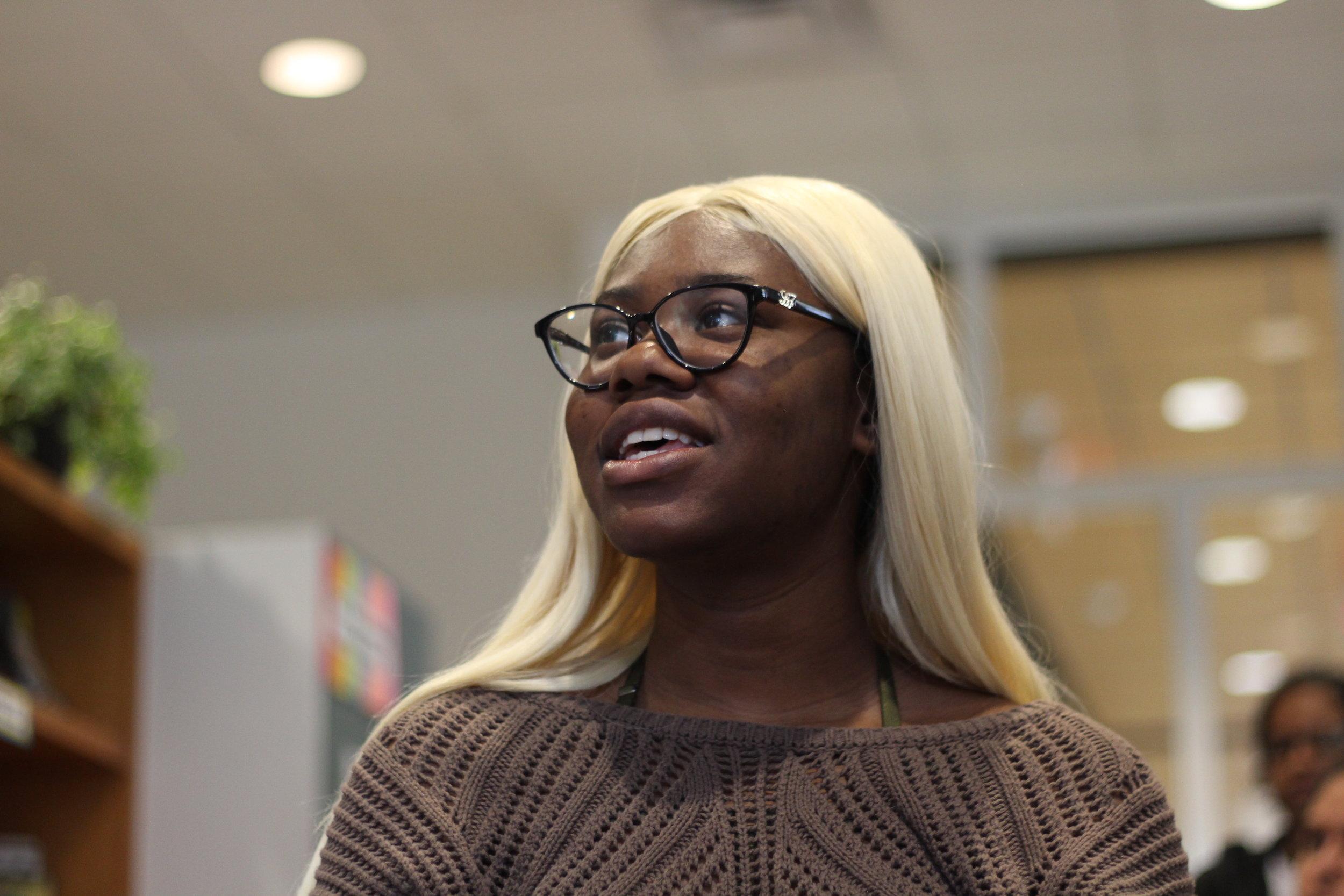From March 20 to 24, a group of University of Texas at Austin students planned and hosted Black and Indigenous Women of Color (BIWOC) Week to empower marginalized women and femmes.
Story by Madison Goodrich
Photos by Alissa Jae-Lazo Kim and Alexander Thompson
Each day of the week, a different activity or session aimed to educate the greater UT Austin community and create a safe space for black and indigenous women. A few of the week’s events hosted guest speakers that discussed a range of topics from entrepreneurship to branding and learning how to improve future BIWOC weeks. Other events facilitated discussions surrounding mental health, academics and healthy relationships.
Students listen to a presentation about relationship health, located in UT’s Multicultural Engagement Center.
The inspiration for the week came from a class taught by Professor Omise’eke Tinsley titled “Race, Gender, and Education at UT. Women and gender studies and philosophy sophomore Sarah Ogunmuyiwa, was one of the organizers of BIWOC Week and even used the class syllabus as a basis. This, in addition to the need to highlight the black and indigenous experiences on campus inspired the event planning. “When I was running for U-wide [university-wide] rep last year I wanted to create safe spaces on campus for women of color because there weren’t any safe spaces for us on campus,” Ogunmuyiwa says.
Speakers were an integral part to this program and offered attendees the opportunity to learn from leaders in the Austin community. Carmarion D. Anderson, president of Black Transwomen, Inc., shared her experiences of being an out, trans reverend in the South and her move from Dallas to Austin. Anderson hopes the audience learned to be open-minded and wants BIWOC Week to soon turn into a movement. “Be careful how [you] judge a book because that particular book can open up and teach you many other things,” Anderson says.
Anderson attends BIWOC week and speaks about her experience as a black trans woman.
Ogunmuyiwa could not choose a favorite event because she felt all served their own, needed purpose. “They were all really good. Like entrepreneurship was bomb — it was really beneficial for women and femmes,” Ogunmuyiwa says. “Mental health day and sexual health really helped everyone open up. It was a very intimate space. It felt very comfortable for people. We talked about deep topics, there was no surface level conversation.”
Ogunmuyiwa participates in group discussion during a BIWOC session.
Joy Holland, a government and Middle Eastern studies senior, hoped the attendees enjoyed the week as much as she did. “As a senior, I really hope that this week continues to happen in the future because I felt like it was so impactful for so many people who attended,” Holland says. “So many connections were made and so many resources were proliferated.”





